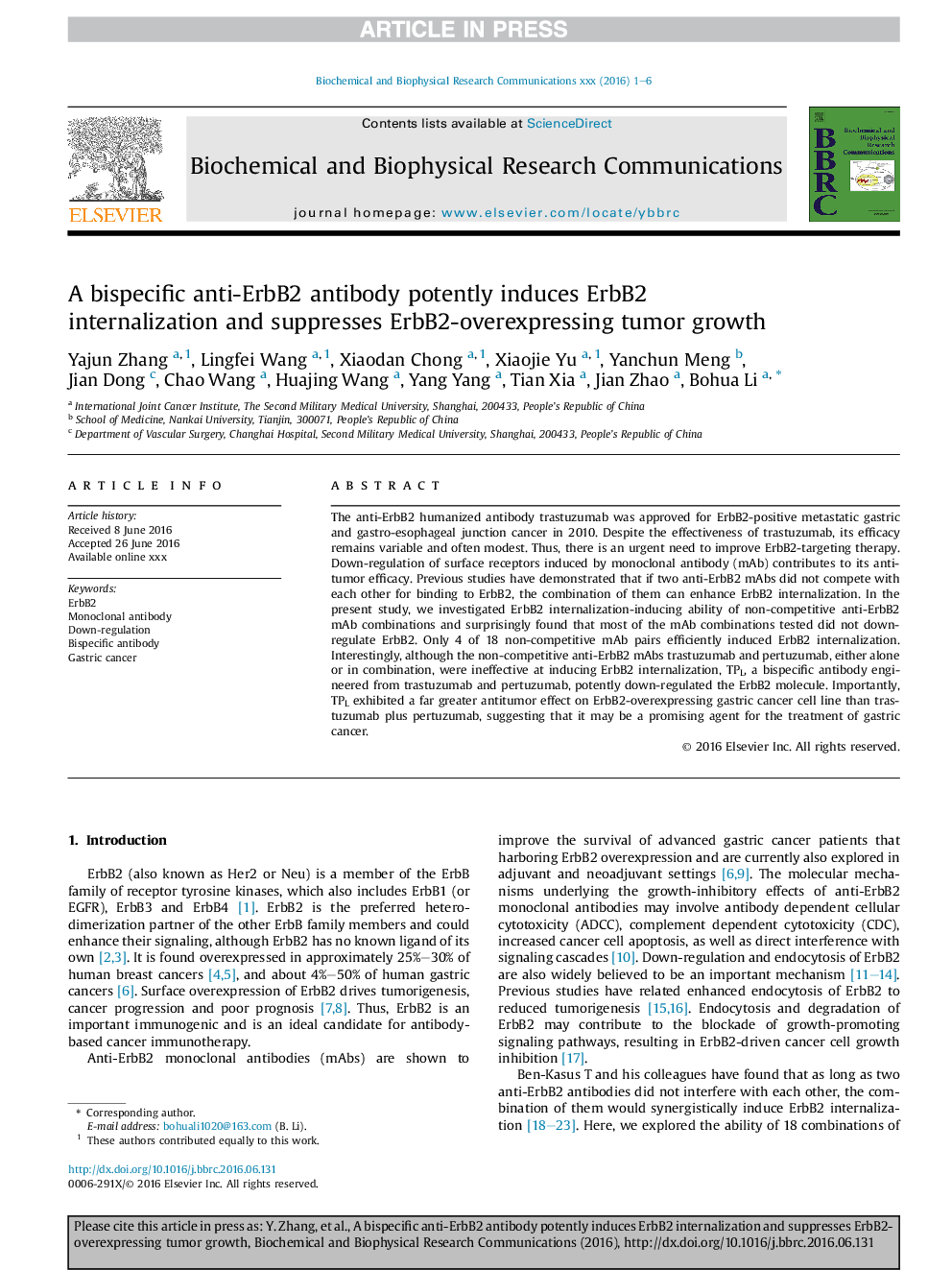| Article ID | Journal | Published Year | Pages | File Type |
|---|---|---|---|---|
| 10747952 | Biochemical and Biophysical Research Communications | 2016 | 6 Pages |
Abstract
The anti-ErbB2 humanized antibody trastuzumab was approved for ErbB2-positive metastatic gastric and gastro-esophageal junction cancer in 2010. Despite the effectiveness of trastuzumab, its efficacy remains variable and often modest. Thus, there is an urgent need to improve ErbB2-targeting therapy. Down-regulation of surface receptors induced by monoclonal antibody (mAb) contributes to its antitumor efficacy. Previous studies have demonstrated that if two anti-ErbB2 mAbs did not compete with each other for binding to ErbB2, the combination of them can enhance ErbB2 internalization. In the present study, we investigated ErbB2 internalization-inducing ability of non-competitive anti-ErbB2 mAb combinations and surprisingly found that most of the mAb combinations tested did not down-regulate ErbB2. Only 4 of 18 non-competitive mAb pairs efficiently induced ErbB2 internalization. Interestingly, although the non-competitive anti-ErbB2 mAbs trastuzumab and pertuzumab, either alone or in combination, were ineffective at inducing ErbB2 internalization, TPL, a bispecific antibody engineered from trastuzumab and pertuzumab, potently down-regulated the ErbB2 molecule. Importantly, TPL exhibited a far greater antitumor effect on ErbB2-overexpressing gastric cancer cell line than trastuzumab plus pertuzumab, suggesting that it may be a promising agent for the treatment of gastric cancer.
Related Topics
Life Sciences
Biochemistry, Genetics and Molecular Biology
Biochemistry
Authors
Yajun Zhang, Lingfei Wang, Xiaodan Chong, Xiaojie Yu, Yanchun Meng, Jian Dong, Chao Wang, Huajing Wang, Yang Yang, Tian Xia, Jian Zhao, Bohua Li,
